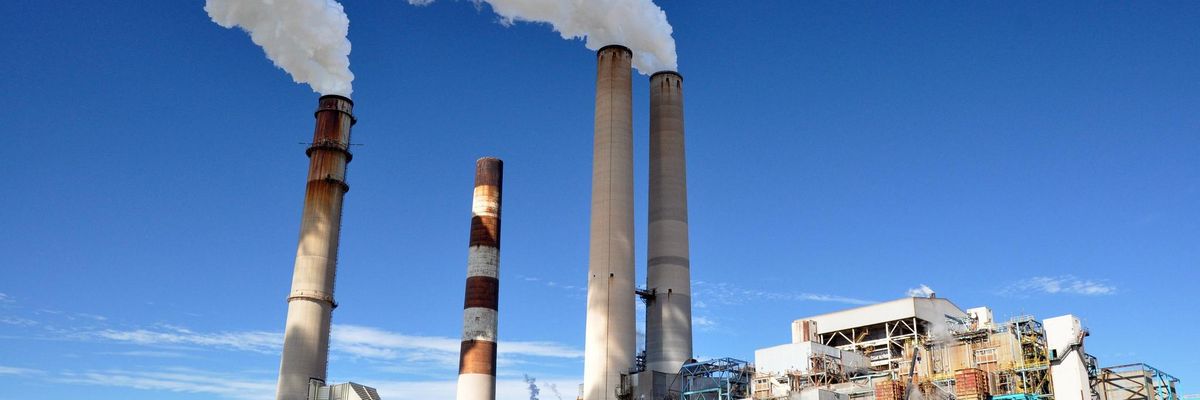Warning of a "giant leap backwards for humankind," the Global Carbon Project said in a report (pdf) released Monday that carbon emissions are expected to hit a record high in 2017, following three years of stable CO2 levels.
The level of carbon dioxide in the atmosphere has risen about two percent in 2017 according to climate scientists, dashing hopes that the world had already seen the highest emission levels from the coal, oil, and gas industries.
The findings carry urgent implications for the next three years. A report released earlier this year by scientists at Carbon Tracker, the Potsdam Institute for Climate Impact Research, and Yale University showed that global emissions must begin falling quickly after 2020 in order to keep the global temperature from rising more than 2 degrees Celsius above pre-industrial levels.
Professor Corinne Le Quere of the University of East Anglia, who led the Global Carbon Project's study, called the findings "very disappointing."
"The urgency for reducing emissions means they should really be already decreasing now," she said in an interview with the Associated Press.
Much of the rise in carbon emissions this year was attributed to China in the report, which was presented at COP23 in Bonn, Germany. But China has invested hundreds of billions of dollars in developing its renewable energy sector while President Donald Trump has made clear his intention of aiding and abetting the fossil fuel industry's climate denialism and polluting activities.
Trump has announced plans to shield the oil, gas, and coal companies from Obama-era regulations including the Clean Power Plan, meant to rein in carbon emissions. In June he withdrew the United States from the 2015 Paris climate agreement, under which every other nation in the world has now agreed to limit climate change-causing pollution.
Carbon emissions in the U.S. declined 0.4 percent in 2017 according to the Global Carbon Project--less than in previous years.
"What happens after 2017 is very open and depends on how much effort countries are going to make," said Le Quere. "It is time to take really seriously the implementation of the Paris agreement."
